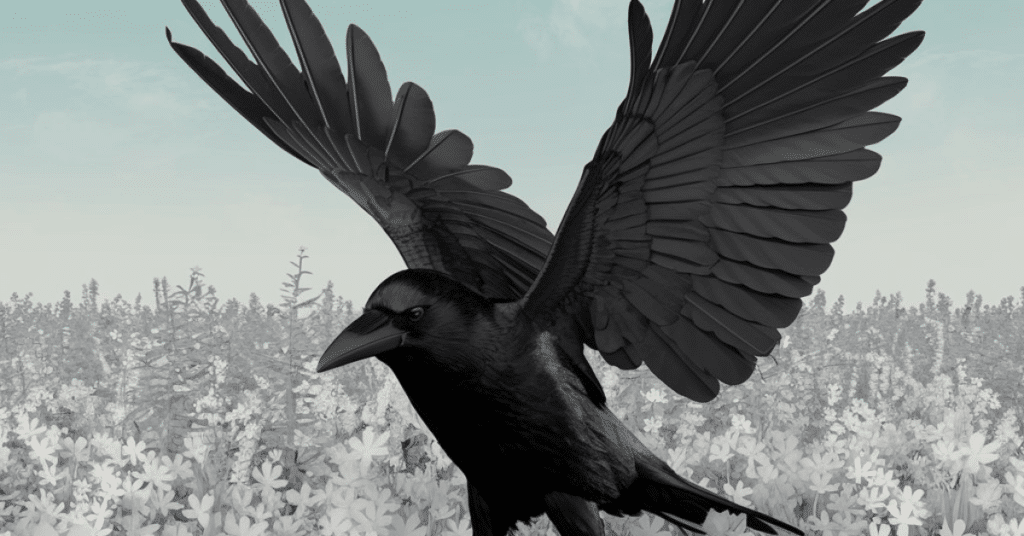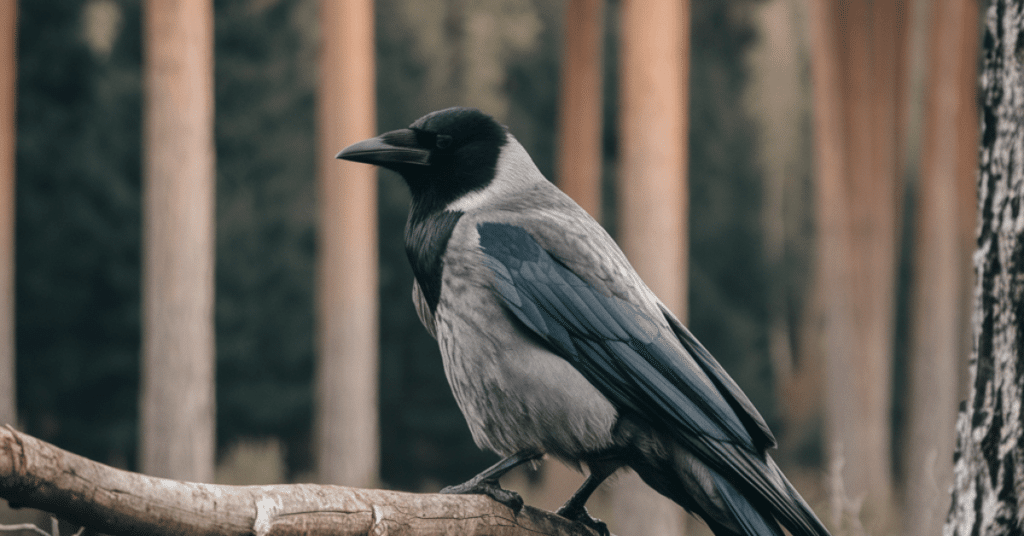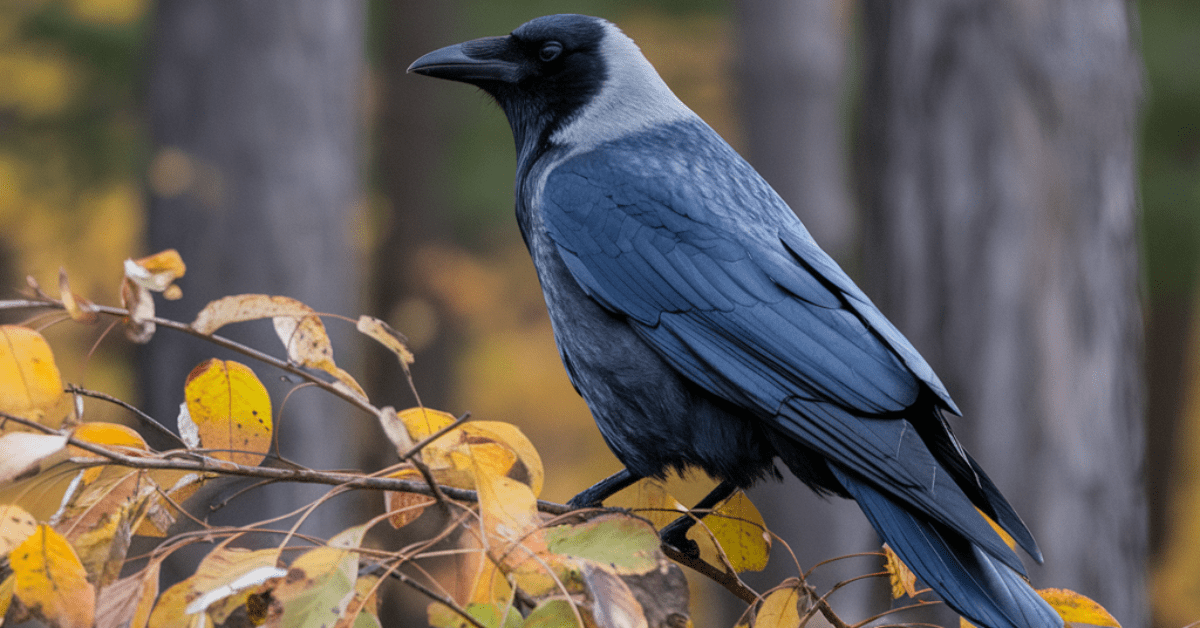Crows, often considered mysterious creatures, have appeared throughout history in various forms of art, literature, and religious texts. In the Bible, animals frequently serve as symbols representing deeper spiritual meanings, and crows are no exception. Though these black-feathered birds are sometimes viewed as harbingers of misfortune, their biblical symbolism is far more complex. By understanding the biblical meaning of crows, we can delve into the spiritual messages they may convey.
In this comprehensive guide, we’ll explore the biblical significance of crows in biblical texts, how different biblical interpretations have emerged, and the lessons they impart to those who seek to understand their divine symbolism.
The Crow in the Bible: An Overview
Crows are mentioned in several places in the Bible, and each instance provides insight into their symbolic interpretation in the Scriptures. The first appearance of a crow, or more specifically, a raven (a close relative of the crow), is in the story of Noah’s Ark in Genesis 8:6-7. After the great flood, Noah releases a raven to determine if the waters have receded, but the raven does not return. This scene is loaded with symbolism and serves as a foundation for understanding the biblical meaning of crows.
While the crow is not mentioned as often as other animals like sheep or doves, its role in Scripture often reflects spiritual ideas of divine judgment, provision, and spiritual transformation.

The symbolism of Crows in the Bible
Divine Judgment
One of the primary symbols associated with crows in the Bible is divine judgment. The raven, sent from Noah’s Ark, fails to return, symbolizing a world still under judgment after the flood. Ravens and crows are scavengers, often feeding on carrion, which may lead them to be seen as unclean or associated with death and decay.
In biblical analysis, crows may represent the aftermath of divine judgment, where the earth is still cleansing itself. The bird’s role as a scavenger could be symbolic of spiritual desolation, a reminder of what happens when humanity turns away from God. The biblical interpretation of crows often includes this idea of judgment and cleansing.
Provision and God’s Care
Though crows can be seen as omens of death, they also have a powerful connection to God’s provision. In 1 Kings 17:4-6, the prophet Elijah is miraculously fed by ravens during a period of drought and famine. Here, ravens act as instruments of divine care, showing that even creatures often viewed as unclean can be used by God to sustain His people. This example illustrates the biblical definition of provision in times of need.
This narrative shifts the perception of crows in biblical symbolism. Rather than being mere harbingers of doom, they are also seen as reminders that God provides for His people in unexpected ways, even during difficult times. The spiritual meaning in the Bible suggests that God’s care can come through any means, even those that seem unlikely.
Spiritual Transformation
Crows may also represent a spiritual transformation in the Bible. While their black feathers and scavenger habits could symbolize death or sin, they can also signify the transition from darkness to light. The crow’s ability to adapt and thrive in harsh environments serves as a metaphor for the resilience of the human spirit in the face of spiritual trials.
In Christian biblical interpretation, the crow is sometimes linked to the concept of repentance. Just as the bird moves through different phases in its life, from scavenger to survivor, individuals too can experience spiritual rebirth and renewal through faith. This represents the importance of biblical definitions when it comes to understanding the nuances of animal symbolism in Scripture.

Cultural and Historical Interpretations of Crows
Beyond the biblical context, crows have a rich history in different cultures and spiritual beliefs. In ancient times, crows were often seen as messengers between the worlds of the living and the dead. In many indigenous cultures, these birds are revered as symbols of wisdom, intelligence, and guidance.
The Hebrew Bible, in particular, offers varied interpretations of crows. In Jewish tradition, ravens are sometimes viewed with suspicion because of their scavenger habits, but they are also admired for their intelligence and persistence. In Psalm 147:9, God is said to care for even the ravens, further underscoring the idea that divine love extends to all creatures, reflecting the significance of biblical names like “raven” in ancient texts.
Lessons from the Crow: What We Can Learn Today
Embracing Change
One of the most powerful lessons that crows teach us in the Bible is to embrace change. Just as the raven’s failure to return to Noah symbolizes the continued devastation of the flood, it also signals that the world must transform before it is restored. In the same way, personal growth and spiritual renewal often require passing through challenging periods before emerging stronger on the other side. This aligns with the symbolic interpretation in the Scriptures regarding change and transformation.
Trusting in God’s Provision
The story of Elijah being fed by ravens serves as a reminder that God’s care often comes in unexpected forms. Just as the unclean birds brought nourishment to the prophet, divine blessings can sometimes arrive in ways we don’t anticipate. Trusting in God’s provision, even when the path is unclear, is an important theme illustrated by the biblical understanding of crows. What is the meaning of biblical names like raven or crow in these contexts? It signifies God’s unexpected methods of care.
Overcoming Darkness
Crows, often perceived as symbols of death, can also signify overcoming darkness. Their biblical symbolism challenges us to confront our fears and struggles, knowing that spiritual transformation is possible. The crow reminds us that even in moments of desolation, there is hope for renewal. This message resonates with the significance of biblical meanings of creatures often misunderstood in religious texts.

FAQs
Are crows considered evil in the Bible?
While crows and ravens are often associated with death and divine judgment due to their scavenger habits, they are not inherently evil in the Bible. They are sometimes portrayed as instruments of God’s care and provision, as seen in the story of Elijah.
What is the spiritual meaning of seeing a crow?
In a biblical sense, seeing a crow could represent various things, including judgment, provision, or spiritual transformation. The meaning often depends on the context in which the crow is encountered. Spiritually, crows can symbolize a call to face challenges or adapt to change.
Why did Noah send a raven instead of a dove?
Noah first sent a raven to check if the floodwaters had receded because ravens are scavengers that would continue flying until they found land. The dove, sent afterward, is often seen as a symbol of peace and restoration, but the raven’s role may symbolize the ongoing desolation after the flood.
How can the biblical symbolism of crows apply to my life?
The biblical symbolism of crows can offer lessons about embracing change, trusting in God’s provision, and finding hope in difficult circumstances. Crows remind us that even during times of spiritual trial, renewal and transformation are possible.
Q: What does a crow symbolize in Christianity?
A: In Christianity, crows can symbolize both judgment and provision. They often represent spiritual transformation and God’s unexpected care, as seen in the story of Elijah.
Why are crows considered unclean in the Bible?
Crows, like other scavengers, are considered unclean in the Bible due to their diet of carrion. Their role as scavengers links them to themes of death and spiritual desolation.
Do crows have a positive meaning in the Bible?
Yes, crows have a positive meaning as well. Despite being seen as unclean, they are used by God to provide for His people, showing that even the least expected can fulfill divine purposes.
How many times are crows or ravens mentioned in the Bible?
Crows and ravens are mentioned a few times in the Bible, notably in the story of Noah’s Ark and the account of Elijah being fed by ravens. Each instance carries significant symbolism.
Can crows be a sign of spiritual transformation?
Yes, crows can symbolize spiritual transformation in the Bible. They represent the journey from darkness or sin to enlightenment and renewal.
What is the difference between a raven and a crow in biblical symbolism?
Ravens and crows are often used interchangeably in biblical symbolism. Both represent themes of judgment, provision and the contrast between death and spiritual renewal.
Conclusion
The biblical meaning of crows is rich with symbolism, from divine judgment to God’s provision and spiritual transformation. Though often misunderstood as mere harbingers of death or misfortune, crows in Scripture serve a far more complex role. They remind us that even in moments of darkness, there is always a path to spiritual renewal and redemption.

